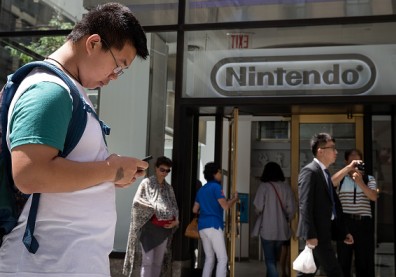There are lots of medical reasons to make some time for video games in your life. They help with depression, they build fine motor skills, they... help you be a more decisive person?
According to NBC News, playing "action games," ranging from first-person shooters to beat-em-ups like "Metal Gear Rising" and "God of War," help people to process facts and make accurate judgment calls more quickly. Many studies have suggested that the twitch-mechanics of some games can improve one's physical reaction time, but not necessarily foster quick thinking. This study confirms that playing games can have a deeper, postive effect on how we process information.
In the study, both "gamers" and non-gamers were shown sets of dots and asked to identify which ones were moving and what direction they were going. The "gamer" group included people who played an average of at least five hours per week. Based on the study, the gamer group was able to answer the questions more quickly and with equal accuracy.
The study also included an audio test, where subjects were put on headphones and were asked to identify what direction sounds were coming from. Once again, the gamers tended to react more quickly, with the similar levels of accuracy. (Admittedly, gamers using a headset have basically been training for that one thanks to "Call of Duty" and "World of WarCraft.")
Furthermore, non-gamers showed marked improvement when forced to play as many as 50 hours of shooters like "Call of Duty." Not every kind of game is helpful though. Unfortunately for "Starcraft" fans, strategy games don't seem to help build decision-making skills. Neither do RPGs.
So why do games help? According to researcher Daphne Bavelier, games may help players make all kinds of decision because they're so unpredictable:
"Our brains constantly perform probabilistic inferences - as you drive along and detect some unexpected moving object on the right side of the road, say a motorcycle, your brain will compute how likely it is that you are on a collision path with that motorcycle, and then infer from this probability whether you need to steer left or not," Bavelier explains. "This kind of inference is used each time we make a decision."
In her assessment, Bavelier suggests that the gaming's wide-ranging neurological benefits could help patients recovering from brain injuries rebuild mental memory for even everyday tasks.










